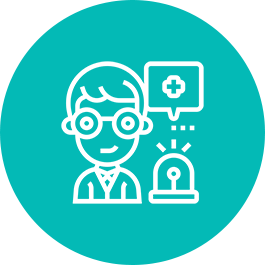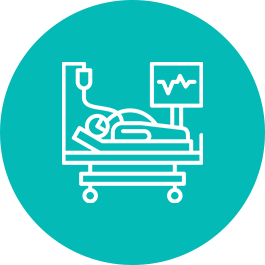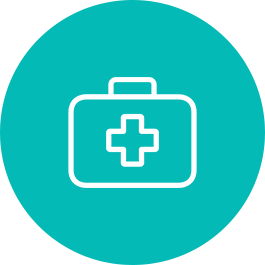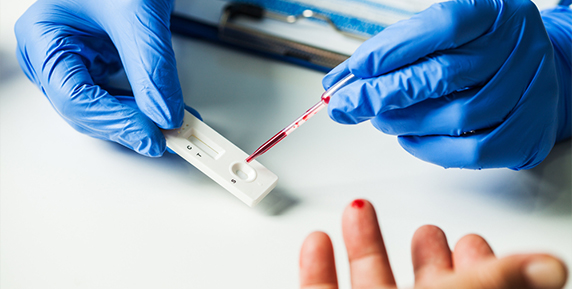Emergency Medicine

Emergency medicine is a specialized branch of medicine dedicated to promptly evaluating and treating acute illnesses and injuries. Emergency physicians, also referred to as emergency doctors, are trained to manage a broad spectrum of medical emergencies across various settings like emergency departments, ambulances, and pre-hospital settings. Their primary aim is to swiftly assess and stabilize patients to prevent further harm and deliver life-saving interventions.
Furthermore, emergency medicine entails a comprehensive approach to patient care. Emergency physicians collaborate with a diverse team of healthcare professionals, including nurses, paramedics, and specialists, to ensure patients receive appropriate and effective treatment. They administer acute pain relief, prescribe medications, and liaise with other specialties for additional care or admission as needed. Given the fast-paced and high-pressure nature of emergency medicine, exceptional communication, problem-solving abilities, and the capacity to remain composed in stressful scenarios are crucial.
In essence, emergency medicine plays a pivotal role in the healthcare system by promptly providing medical attention to those in crisis, thereby saving lives, stabilizing patients, and initiating vital treatments, ensuring individuals in medical emergencies receive timely and quality care.
Reasons why a Emergency Medicine may work for you







To receive immediate medical attention in urgent situations
Seeking immediate and professional care during urgent situations is essential. In these cases, emergency medicine can greatly influence the outcomes of various medical emergencies.
To assess and stabilize severe injuries or life-threatening conditions
When confronted with severe injuries or life-threatening conditions, opting for emergency medicine ensures a swift response, critical interventions, expert care, trauma management, resuscitation, and immediate life-saving treatments, all aimed at effective assessment and stabilization.


To diagnose and treat acute illnesses and infections promptly
Consider emergency medicine for the rapid diagnosis and treatment of acute illnesses and infections, ensuring timely and life-saving interventions in critical situations.
To manage severe pain or discomfort effectively
Emergency medicine can efficiently manage severe pain or discomfort, offering immediate relief to patients in critical conditions.


To receive specialized care for trauma-related injuries
Choose emergency medicine for specialized care in trauma-related injuries. Experts in this field are trained to respond swiftly and effectively to critical situations, delivering life-saving interventions.
To access advanced diagnostic tests and imaging quickly
Emergency medicine provides rapid access to advanced diagnostic tests and imaging, allowing for quick evaluation and treatment in critical situations.


To benefit from a multidisciplinary team of healthcare professionals
Emergency medicine offers swift access to advanced diagnostic tests and imaging, ensuring timely identification of critical conditions. This enables prompt, targeted interventions that can save lives in urgent situations, ensuring optimal outcomes.
To receive timely interventions for cardiac emergencies or strokes
A key benefit of emergency medicine is the advantage of having a diverse healthcare team.


To obtain rapid relief for respiratory distress or allergic reactions
If you need quick relief from respiratory distress or allergic reactions, emergency medicine provides immediate care and support.
To ensure optimal outcomes in critical situations
In critical situations, opt for emergency medicine for optimal outcomes. Its rapid response, specialized training, handling of diverse cases, teamwork, advanced technology, and decisive actions are crucial for saving lives.

